Tomato paste is a versatile ingredient used in a wide array of dishes, bringing depth, flavor, and richness to recipes. However, there are instances where tomato paste can unexpectedly impart a bitter taste, which can significantly affect the overall flavor profile of a dish. In this article, we will delve into the reasons behind this bitterness and explore possible solutions to enhance your cooking experience. 1. Quality of Tomatoes: One crucial factor that can contribute to the bitterness of tomato paste is the quality of tomatoes used during production. Inferior quality tomatoes, picked at the wrong stage of maturity, or those affected by diseases or pests, can result in a bitter taste.

.
 It is vital for manufacturers to source high-quality tomatoes to ensure the best possible taste of the final product. 2. Processing Methods: The processing methods employed during the production of tomato paste can also affect its taste. Overprocessing or overheating the tomatoes can lead to the release of certain enzymes, such as polyphenol oxidase, which can cause bitterness. Properly controlled processing methods, such as low-temperature evaporative concentration, can help preserve the natural sweetness and flavor of the tomatoes while minimizing bitter notes. 3. Storage and Packaging: Improper storage conditions or packaging can lead to the degradation of tomato paste quality, resulting in a bitter taste.
It is vital for manufacturers to source high-quality tomatoes to ensure the best possible taste of the final product. 2. Processing Methods: The processing methods employed during the production of tomato paste can also affect its taste. Overprocessing or overheating the tomatoes can lead to the release of certain enzymes, such as polyphenol oxidase, which can cause bitterness. Properly controlled processing methods, such as low-temperature evaporative concentration, can help preserve the natural sweetness and flavor of the tomatoes while minimizing bitter notes. 3. Storage and Packaging: Improper storage conditions or packaging can lead to the degradation of tomato paste quality, resulting in a bitter taste.
..
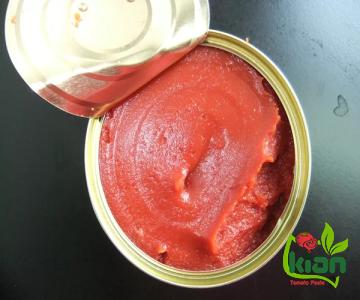 Exposure to light, air, or high temperatures can accelerate the development of off-flavors. Producers should prioritize adequate packaging, using materials that provide protection against light and oxygen, and ensure proper storage conditions to maintain the taste and freshness of the tomato paste. 4. pH Balance: The pH level of tomato paste plays a significant role in its taste. Tomatoes are naturally acidic, and if the acidity is too high due to factors such as underripe tomatoes or changes in the production process, the resulting paste can taste more bitter. Proper pH control during processing and testing can help maintain the desired balance, ensuring a pleasant taste. Solutions to Counteract Bitterness: 1. Use High-Quality Tomato Paste: To minimize the chances of encountering bitter tomato paste, consumers and chefs should choose products from reputable brands that prioritize using high-quality tomatoes and employ careful processing methods.
Exposure to light, air, or high temperatures can accelerate the development of off-flavors. Producers should prioritize adequate packaging, using materials that provide protection against light and oxygen, and ensure proper storage conditions to maintain the taste and freshness of the tomato paste. 4. pH Balance: The pH level of tomato paste plays a significant role in its taste. Tomatoes are naturally acidic, and if the acidity is too high due to factors such as underripe tomatoes or changes in the production process, the resulting paste can taste more bitter. Proper pH control during processing and testing can help maintain the desired balance, ensuring a pleasant taste. Solutions to Counteract Bitterness: 1. Use High-Quality Tomato Paste: To minimize the chances of encountering bitter tomato paste, consumers and chefs should choose products from reputable brands that prioritize using high-quality tomatoes and employ careful processing methods.
…
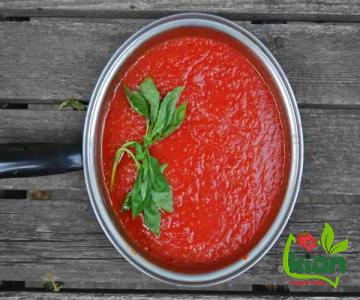 2. Cooking Techniques: When encountering bitter tomato paste, incorporating complementary flavors can help balance the taste. Adding a pinch of sugar, a splash of vinegar or lemon juice, or cooking the paste for a longer period can help neutralize bitterness and bring out the natural sweetness of the tomatoes. 3. Blending with other Ingredients: Blending the tomato paste with other ingredients, such as onions, garlic, or herbs, can help mask the bitterness and create a balanced flavor profile. Be creative and experiment with different combinations to find the perfect taste for your recipes. Conclusion: While bitter tomato paste can be an unfortunate occurrence, understanding the potential causes and implementing the suggested solutions can help improve your culinary experience. By choosing high-quality tomato paste, paying attention to processing methods, and employing various cooking techniques, you can elevate the taste of your dishes and savor the true essence of tomatoes without any bitterness.
2. Cooking Techniques: When encountering bitter tomato paste, incorporating complementary flavors can help balance the taste. Adding a pinch of sugar, a splash of vinegar or lemon juice, or cooking the paste for a longer period can help neutralize bitterness and bring out the natural sweetness of the tomatoes. 3. Blending with other Ingredients: Blending the tomato paste with other ingredients, such as onions, garlic, or herbs, can help mask the bitterness and create a balanced flavor profile. Be creative and experiment with different combinations to find the perfect taste for your recipes. Conclusion: While bitter tomato paste can be an unfortunate occurrence, understanding the potential causes and implementing the suggested solutions can help improve your culinary experience. By choosing high-quality tomato paste, paying attention to processing methods, and employing various cooking techniques, you can elevate the taste of your dishes and savor the true essence of tomatoes without any bitterness.




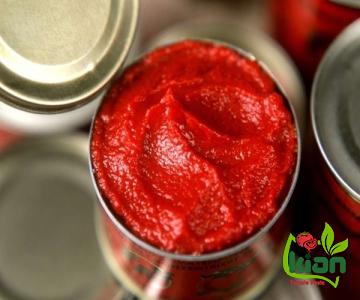
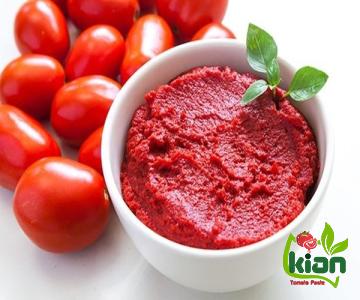
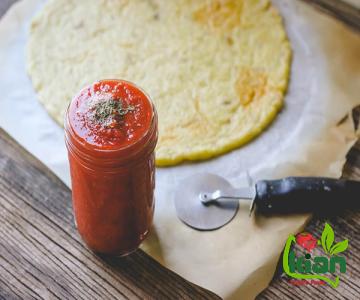




Your comment submitted.